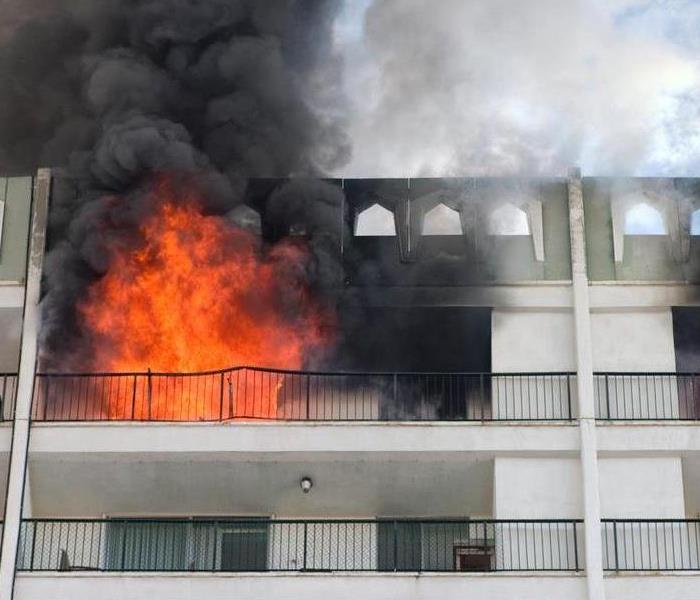6 Essential Tips for Securing Your Building After a Fire
4/5/2023 (Permalink)
A fire can be a devastating event for any building, and its aftermath can be just as challenging. If your building has suffered from a fire, you'll need to take steps to keep it secure and safe, both for yourself and for any visitors or tenants. Here are some tips on how to keep your building secure after a fire.
Inspect the Building
After a fire, it's important to inspect the building for damage. If you're not sure how to do this, consider hiring a professional inspector to assess the damage. Look for any structural damage, such as cracks or bulges in the walls, floors, or ceilings, and make sure all doors and windows are secure. Don't forget to check the roof, as it can be a common place for damage to occur.
Secure the Building
If there are any holes or openings in the building's exterior, such as broken windows or doors, you'll need to secure them. This can be done by covering the openings with plywood or boarding them up. Make sure that all entrances and exits are secure, and consider installing security cameras to monitor the building.
Check the Utilities
Before anyone can enter the building, it's essential to ensure that all utilities, such as gas, water, and electricity, are turned off. If any of these utilities were damaged in the fire, don't attempt to turn them back on yourself. Instead, contact a licensed professional to inspect and repair them.
Remove Debris
The aftermath of a fire can leave a lot of debris, such as burnt furniture, building materials, and personal belongings. Not only is this debris unsightly, but it can also be a safety hazard. Hire a professional cleaning company to remove any debris and thoroughly clean the building.
Keep the Building Safe
Even after the building has been secured, it's important to keep it safe. If the building is unoccupied, consider installing an alarm system that can alert you if someone tries to enter. If there are any hazards, such as loose wiring or damaged gas lines, have them repaired immediately.
Be Prepared for Future Emergencies
Finally, it's essential to be prepared for future emergencies. Make sure that you have an emergency plan in place and that all tenants or visitors are aware of it. Consider installing smoke detectors, fire extinguishers, and other safety equipment throughout the building.
In conclusion, keeping your building secure after a fire requires a combination of diligence and preparation. By taking the necessary steps to inspect, secure, and clean the building, as well as being prepared for future emergencies, you can help to ensure the safety and security of your building and its occupants.

 24/7 Emergency Service
24/7 Emergency Service
